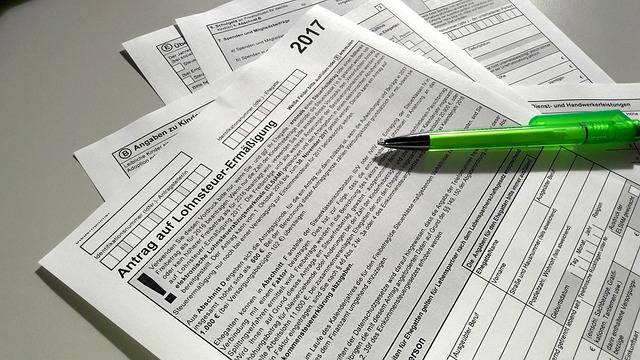Inheritance tax planning is crucial for a smooth transfer of assets after death, minimizing complexities and ensuring financial fairness for beneficiaries. It involves understanding tax implications for property, investments, and valuable items, with key steps including: assessing all assets & liabilities, identifying sources of wealth & debts, consulting professionals for region-specific rules, staying proactive through estate plan reviews, and updating as needed to minimize tax burdens. Creating a will, selecting the right beneficiaries, and engaging professional guidance from attorneys and financial advisors are essential elements in effective inheritance tax planning.
Efficient inheritance planning ensures a seamless transition of assets, minimising potential tax burdens and legal complexities. This comprehensive guide outlines five vital steps for navigating the process smoothly. From understanding the intricacies of inheritance tax and assessing your financial standing to crafting a clear will, choosing beneficiaries, and seeking expert guidance, each step is designed to safeguard your legacy. Implement these strategies for effective inheritance tax planning and ensure peace of mind for you and your loved ones.
- Understanding Inheritance Tax: Unraveling the Basics
- Assessing Your Assets and Liabilities: A Comprehensive Review
- Creating a Will: Documenting Your Wishes Clearly
- Choosing the Right Beneficiaries: Ensuring Your Legacy
- Seeking Professional Guidance: Navigating Legal and Financial Complexities
Understanding Inheritance Tax: Unraveling the Basics

Inheritance tax planning is a crucial aspect of ensuring a smooth transition of assets upon your passing. It involves understanding the tax implications and potential liabilities associated with transferring property, investments, and other valuable items to your beneficiaries. While it may seem intimidating at first, knowing the basics can empower you to make informed decisions during the inheritance tax planning process.
The key is to familiarize yourself with the applicable rates and exemptions. Inheritance tax laws vary across jurisdictions, so consult a professional to determine the specific rules in your region. Additionally, staying proactive by reviewing and updating your estate plan periodically will help minimize potential tax burdens on your loved ones. Effective inheritance tax planning not only ensures financial fairness for beneficiaries but also allows you to leave a lasting legacy without unnecessary complications.
Assessing Your Assets and Liabilities: A Comprehensive Review

Before diving into inheritance tax planning, it’s crucial to conduct a thorough assessment of your assets and liabilities. This involves identifying all sources of wealth, including property, investments, pension funds, and cash holdings. It also entails recognizing any debts or outstanding loans that may need to be addressed during the planning process. A comprehensive review ensures that every aspect of your financial situation is considered, enabling you to make informed decisions about how to optimize your inheritance for future generations.
This step is vital for minimizing potential Inheritance Tax liabilities and ensuring a smooth transfer of assets. By understanding the full scope of your finances, you can develop strategies to protect and preserve your wealth, such as making gifts while you’re alive or setting up trusts. This proactive approach allows for more control over your inheritance tax planning and helps guarantee that your wishes are carried out efficiently.
Creating a Will: Documenting Your Wishes Clearly

When planning for inheritance tax, creating a will is the foundational step. It’s your chance to document your wishes clearly and ensure your assets are distributed according to your preferences after your passing. A well-drafted will outlines who will inherit what, including specific items of sentimental value or financial accounts. This clarity can significantly streamline the post-mortem process, avoiding potential disputes among beneficiaries.
Moreover, a will allows you to consider inheritance tax implications strategically. By carefully allocating assets, you may be able to reduce taxable estates and minimize the impact of inheritance tax. Consulting with an expert in inheritance tax planning during this stage is advisable, as they can provide valuable insights tailored to your financial situation.
Choosing the Right Beneficiaries: Ensuring Your Legacy

When planning your inheritance, selecting the right beneficiaries is paramount to ensuring your wishes are respected and your legacy is preserved. This involves careful consideration of who will benefit from your estate and why. Think beyond immediate family; include trusted friends, charities that resonate with your values, or even future generations through educational funds.
In addition to personal connections, tax implications play a significant role in beneficiary choices. Understanding inheritance tax planning ensures your assets are distributed efficiently, minimizing potential tax burdens on your loved ones. Consult with a financial advisor or attorney to create a strategy that aligns with both your wishes and legal requirements, safeguarding your legacy for years to come.
Seeking Professional Guidance: Navigating Legal and Financial Complexities

Navigating the complexities of inheritance tax planning can be a daunting task, especially for those new to the process. Engaging professional guidance from attorneys and financial advisors is an essential step to ensure smooth sailing. These experts can help decipher intricate legal requirements and offer tailored strategies to minimize tax liabilities while ensuring your wishes are respected.
With their knowledge of current legislation, they can guide you through potential pitfalls, such as inheritance tax exemptions, gift taxes, and applicable deductions. This support is invaluable, especially when dealing with substantial assets, as it allows for informed decision-making, saves time, and reduces the risk of errors that could lead to costly consequences.
Planning for inheritance tax is a vital step in ensuring a smooth transition of your assets. By understanding the basics, assessing your financial situation, creating a clear will, selecting appropriate beneficiaries, and seeking professional guidance, you can navigate the complexities with confidence. These essential steps empower you to make informed decisions, protect your estate, and leave a lasting legacy according to your wishes. Implement these strategies for effective inheritance tax planning and peace of mind.







